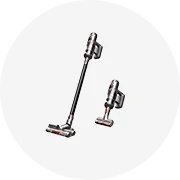

TYTXRV 12V Car Kitchen Stainless Steel With Dual LED Lights Removable For Cleaning Caravan Motorhome Camper Button Range Hood


















Selecting the appropriate commercial range hood is essential for maintaining a clean and safe kitchen environment in any culinary establishment. This integral component of a kitchen exhaust system is designed to remove excess heat, steam, and cooking fumes, ensuring a comfortable working area for kitchen staff.
There are various types of commercial exhaust hoods available, each suited to different kitchen layouts and cooking techniques. The primary categories include wall-mounted hoods, island hoods, and low-profile hoods, which are used in settings ranging from small cafes to large-scale restaurants and institutional kitchens. Understanding the specific needs of your cooking operations, whether it involves heavy frying or steaming, is crucial in selecting the right type of commercial kitchen range hood.
A commercial range hood is not just about functionality but also about durability and ease of maintenance. Most hoods are constructed from stainless steel, known for its resistance to corrosion and high temperatures. Features to consider include the hood's filter type, lighting options, and grease management systems. Advanced models may come with heat sensors and fire suppression kitchen hood systems for added safety.
Proper ventilation provided by ventilation hoods for commercial kitchens is indispensable. It not only helps in maintaining air quality but also plays a role in fire prevention by removing grease-laden vapors. A well-designed commercial cooking exhaust hood can also contribute to energy savings by effectively capturing and exhausting hot air, reducing the load on air conditioning systems.
Efficiency in a commercial range vent hood is measured by its ability to handle the volume of air in cubic feet per minute (CFM). The CFM requirement is dictated by the type and volume of cooking. For instance, establishments with heavy grilling might need a more robust system compared to a bakery. Additionally, the noise level is a critical factor for the working environment, and selecting a commercial hood fan with acceptable decibel levels is important for staff comfort.
Regular maintenance, including kitchen exhaust fan cleaning, is vital for the longevity and proper functioning of the hood. Accumulated grease and debris can pose significant fire risks and reduce efficiency. Therefore, a maintenance-friendly design with accessible components for cleaning and servicing is a wise choice for any busy commercial kitchen.